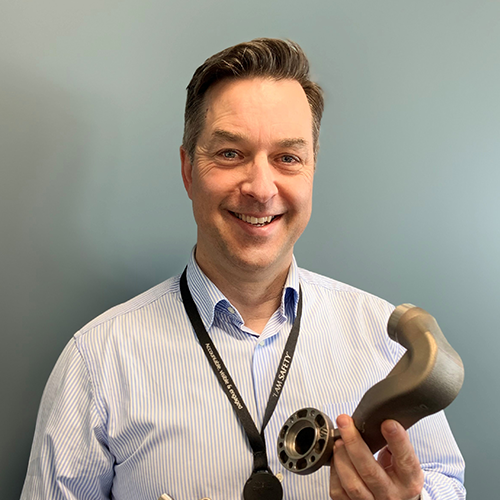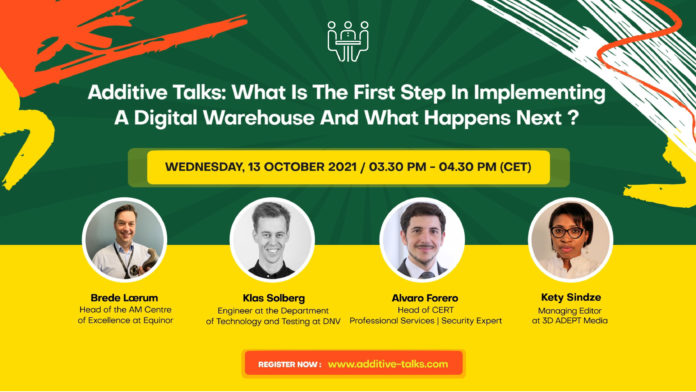In the retail industry, managing inventory consists in ensuring that the number of products demanded by consumers matches the quantity of merchandise available in stores. To make this work, it is pivotal to have a constant look at items being added and subtracted from warehouses and other distribution locations. A similar modus operandi is often seen across manufacturing industries where thousands of spare parts need to be stored in case a customer might need it.
However, unlike the retail industry where products tend to be purchased at a fast pace, such a system often presents some flaws in manufacturing industries where items easily become overstocked. Indeed, a physical warehouse requires minimum order quantity requirements, which means new parts should be produced to meet quantity requirements but can sit on the shelves for years, waiting for a customer in need.
On the other hand, understocked parts also pose a problem as they usually require very long lead times at the production level, not to mention that some of them are still being produced using conventional manufacturing processes which are often ideal for volume production.
At the end of the day, such challenges somehow affect organizations’ profitability.
To address these issues, manufacturers have imagined the concept of a “digital warehouse” – an appealing concept when we know that the ugly truth about warehousing is that most organizations do not know exactly what their true costs are at the end of the year.
Here is the thing, although the concept seems perfectly compatible with Additive Manufacturing, heavy industries like the Oil & Gas often question its viability with regards, to its efficient implementation.
Who should implement a digital warehouse? Most importantly, what is the first step to do so and what happens next?
Our next Additive Talks session gathers a line-up of forward-thinking experts on the topic. Set to take place on Wednesday, October 13th from 03.30 pm to 04.30 pm CET, the virtual table will gather experts from DNV, Equinor and WIBU Systems:
Klas Solberg works as an engineer at the Department of Technology and Testing at DNV. He finished his PhD on “fatigue design for metallic components produced by additive manufacturing” at Department of Mechanical and Industrial Engineering at NTNU April 2021. He is the author of 15 scientific articles on the topic of structural integrity and additive manufacturing. At DNV, he is involved in various projects on materials testing, failure investigation, structural analysis, additive manufacturing, and digital warehousing. He is currently involved in DNVs digital warehouse joint industry project where the goal is to create a framework for how distributed and on-demand printing of spare parts should be carried out to ensure the ultimate goal; that the end user gets the right part, with the right properties within the right time.

DNV is the independent expert in risk management and assurance, operating in more than 100 countries. Through its broad experience and deep expertise DNV advances safety and sustainable performance, sets industry benchmarks, and inspires and invents solutions. Whether assessing a new ship design, optimizing the performance of a wind farm, analyzing sensor data from a gas pipeline or certifying a food company’s supply chain, DNV enables its customers and their stakeholders to make critical decisions with confidence. Driven by its purpose, to safeguard life, property, and the environment, DNV helps tackle the challenges and global transformations facing its customers and the world today. In the energy industry, DNV provides assurance to the entire energy value chain through its advisory, monitoring, verification, and certification services.
Brede Lærum is Head of the Additive Manufacturing Centre of Excellence at Equinor, Chairman of the Fieldmade Digital Inventory project and Chairman of the international network “AM Energy”.
With over 21,000 employees committed to providing affordable energy for societies worldwide, Equinor is a Norwegian state-owned multinational energy company that is on a journey to net zero emissions through the optimisation of its oil and gas portfolio as well as the development of growth in renewables and development of low-carbon value chain in carbon capture and hydrogen. The company currently works with startups and leading companies to help drive the use of Additive Manufacturing within the Oil, Gas & Energy industries. Together with Fieldmade, TotalEnergies and Siemens Energy, they are currently developing an on-demand 3D printing ecosystem for parts supply.

In the soon-to-be released October edition of 3D ADEPT Mag, Equinor has shared how it applies an “Additive Mindset” to address climate change and sustainability issues within the energy industry.
Last but not least, it makes no sense to talk about digital inventory within the AM industry when we know that the potential of the technology can be influenced substantially by the fact that the people printing the objects are not necessarily the people who own the rights to them. Not to mention that there are also opportunities for dedicated agencies that can take over 3D printing jobs for other businesses in their vicinity. All of this makes uncompromising IP protection and flexible monetization options an absolute must for the technology. Wibu-Systems has an important place at this table as with CodeMeter, the company provides a secure and long-established system that can handle all digital value chains in additive manufacturing.
The company will be represented by Alvaro Forero, Head of CERT, Professional Services & Security Expert. He works as Security Expert and Team Leader of the company’s Product Security Incident Response Team for WIBU-SYSTEMS AG. Since 2009, he has been advising software vendors and machine manufacturers on design, planning, and implementation of mechanisms aimed at safeguarding software applications and intelligent devices. With more than 15 years of experience in the IT security industry and as a certified TeleTrusT Information Security Professional (T.I.S.P.), a TeleTrusT Professional for Secure Software Engineering (T.P.S.S.E.), and a Certified Ethical Hacker (C|EH, EC-Council), his mission is to evangelize integrity protection and enable new business models.

Interesting in discovering what this high-profile line-up of speakers has to reveal about digital inventory within heavy industries like the energy sector ?






